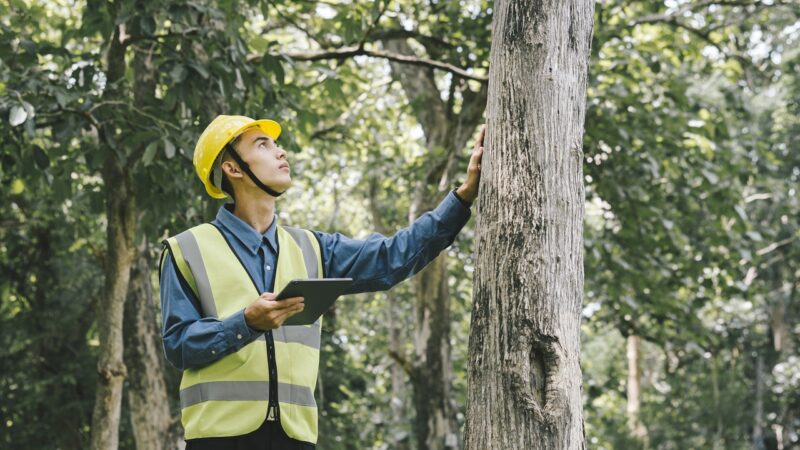Published: 08/07/24 By: Mike Bekin
Despite global efforts to save our forests, 10 million hectares are still lost every year to illegal logging, agriculture and wildfires. To put that in perspective, the woodland we are losing is about the same size as Iceland – every year. We all know this has to stop, but how? One solution is sustainable forestry, and we wanted to take a look at just how impactful these more ethical practices can be.
Can well-managed forests really last forever? Let’s take a look.
How Responsible Farming Makes Forever Forests
Forever forests are spaces where the woodland is purposefully managed to last – the opposite of deforestation, basically! In these spaces, old-growth trees – which are vital for certain species’ survival, providing valuable fruits and nesting spaces – are protected, while young saplings are planted to replace felled trees. There is a constant flow of regeneration and protection, ensuring the forest is never depleted by timber supply.
Responsible timber harvesting is a key part of building forever forests, with many of the same principles. It provides farmers with a way to create an income from their land without destroying habitats and ecosystems, which is better both for their community (providing an income for many generations to come) and for our planet.
Well-Managed Forest Lifecycles
To ensure well-managed forests last forever, they follow a lifecycle: plant, grow, fell and plant again. It is a cycle which can loop infinitely when done properly.
As we mentioned, some older-growth trees must be protected, to keep a diverse landscape. An entire forest of young trees does not provide the variation needed for a wide range of species, so it is vital this policy for older trees is upheld.
It is also important to note that harvesting is done consciously. No more trees are taken than needed, and no single species is overharvested, ensuring that the ecosystem remains in balance for a flourishing forever forest.
Plantations vs Natural Forests
Plantations are not the same as well-managed forests. Though they are a good way to generate a lot of a single type of timber quickly, they do not provide the diversity needed to help other species thrive.
Unfortunately, when natural forests are cleared to make room for plantations, this is not classed as deforestation. There are a number of petitions calling for this to be changed in a bid to protect more natural forests, including the ongoing call from Rainforest Rescue.
Regeneration of Damaged Woodlands
Well-managed forests could also help reverse some of the deforestation seen over the past century – though there is a lot to tackle! In the past few years, it has been discovered that tropical forests can bounce back to full bloom in just 20 years, making it a viable option for mitigating climate breakdown and reviving lost habitats.
Investing in responsible forestry gives farmers, businesses and policymakers more incentive to action the recovery of these lands. Money drives change, and if there is money to be made in well-managed native forests, it is more likely they will be prioritised.
So, not only could responsible forestry conserve our existing woodlands, it could also help save those which we have lost.
Can Well-Managed Forests Last Forever?
Forever forests and well-managed woodlands aim to speed up the scale of conservation in these much-needed spaces. It creates huge areas of safeguarded lands which, with the right certifications, can be protected for hundreds of years to come – or forever! But, it takes consumers making responsible decisions to keep up this good work.
Choose Sustainably Sourced Timber
At EcoChoice, we supply FSC and PEFC-certified timber from responsibly managed forests all over the world, from Canadian Cedar used for cladding boards to French and English Oak for beams or sleepers, we have everything you need for eco-conscious construction. The timber all comes from fully certified sustainable sources which help protect our natural woodlands for generations to come. To learn more about our timber products or start an order, get in touch with our team today.
Tags: managed forests, sustainable forestry
Categories: Insights
